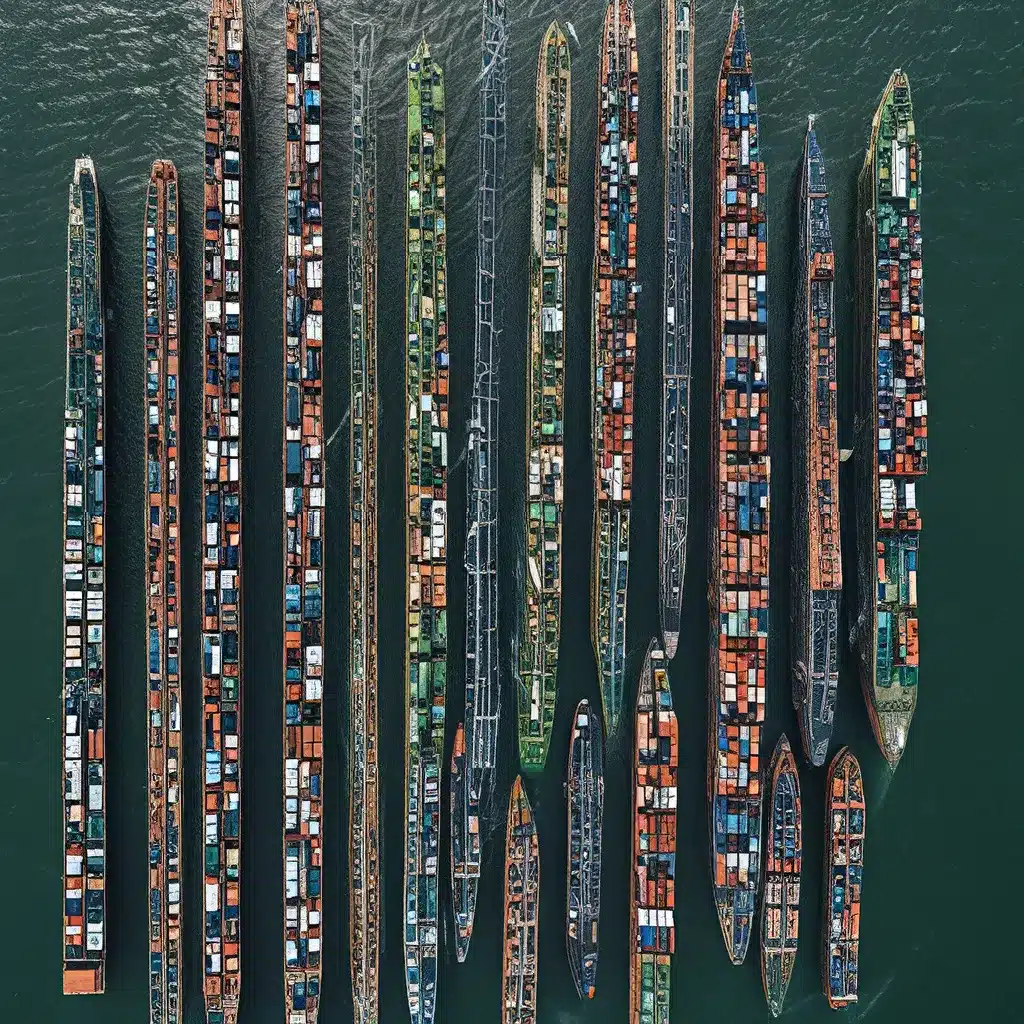
The maritime industry is facing a pivotal moment, as it grapples with the daunting challenge of decarbonization while navigating economic and geopolitical headwinds. With the sector’s greenhouse gas emissions accounting for 3% of the global total and increasing by 20% over the last decade, the urgency for action has never been more pressing.
Charting the Course: Tackling the Emissions Challenge
The International Maritime Organization (IMO) and its member states hold the responsibility for making critical decisions on decarbonization measures. However, the heavy financial burden of transitioning the shipping sector towards cleaner energy could disproportionately impact the most vulnerable nations. Estimates suggest that decarbonizing the world’s fleet by 2050 could require $8 billion to $28 billion annually, with the infrastructure for 100% carbon-neutral fuels needing an even heftier $28 billion to $90 billion each year.
This daunting price tag raises significant concerns, especially for small island developing states (SIDS) and least developed countries (LDCs) that are already burdened by higher shipping costs. These vulnerable nations, often on the frontlines of climate change, are heavily reliant on maritime transport for trade and economic growth, and could face substantial setbacks from the increased costs.
The UNCTAD report advocates for targeted support to mitigate these impacts, including a levy or contributions on fuel emissions that could be used to help make ports in SIDS and LDCs more climate-ready, efficient, and digitally connected. It also calls for global collaboration through “green shipping corridors” – designated routes for sustainable vessels – underscoring the importance of ensuring such initiatives benefit vulnerable economies.
Charting a New Course: Navigating the Transition to Sustainable Fuels
As the industry grapples with the challenge of decarbonization, the search for alternative, cleaner fuels has become a crucial component of the solution. The report highlights that 988% of the current fleet still sails on fossil fuels, with alternative fuels like liquefied natural gas, methanol, and hybrid technologies showing promise, but their adoption remaining in the early stages.
Complicating the transition is the fact that over half the world’s fleet is now older than 15 years, with many ships either too old to retrofit or too young to scrap. This ageing fleet poses a significant obstacle, as the industry must navigate the complex balance between investing in new, greener vessels and extending the life of existing, less efficient ships.
Researchers have explored a range of technological solutions, from hydrogen-based propulsion systems to advanced biofuels and energy-efficiency optimization techniques. However, the adoption of these innovations remains a work in progress, with the industry still heavily reliant on traditional fossil fuels.
Charting a Path Forward: Collaboration and Innovation
To navigate this complex and ever-evolving landscape, the maritime industry must embrace a collaborative approach, working alongside policymakers, port authorities, and the energy sector to drive the transition towards a sustainable and equitable future.
Innovative technology solutions will undoubtedly play a crucial role in this transformation, from advanced data analytics and artificial intelligence to renewable energy integration and digitalization of port operations.
But it’s not just about technology – it’s also about cultivating a culture of continuous improvement, risk-taking, and adaptability. The industry must be willing to experiment, learn from failures, and embrace a mindset of constant evolution to keep pace with the rapidly changing landscape.
Charting a Sustainable Course: The Challenges Ahead
As I reflect on the daunting challenges facing the maritime industry, I can’t help but feel a sense of both urgency and optimism. On one hand, the sheer scale of the decarbonization task, the aging fleet, and the financial burden it places on vulnerable nations is overwhelming. But on the other hand, the ingenuity, collaboration, and innovative spirit that I’ve witnessed in this sector gives me hope that we can navigate these turbulent waters and emerge stronger, more resilient, and more sustainable than ever before.
Sure, there will be setbacks, missteps, and tough decisions along the way. But if we stay focused on the long-term vision, embrace a growth mindset, and work together to find equitable solutions, I believe the maritime industry can lead the way in redefining what it means to be a truly sustainable and responsible global enterprise.
It won’t be easy, but the stakes are too high to settle for anything less. So let’s roll up our sleeves, harness the power of renewable energy, digital technologies, and collaborative partnerships, and chart a new course towards a greener, more prosperous maritime future. Who knows what amazing innovations and breakthroughs lie ahead – the only way to find out is to keep exploring, experimenting, and pushing the boundaries of what’s possible.

